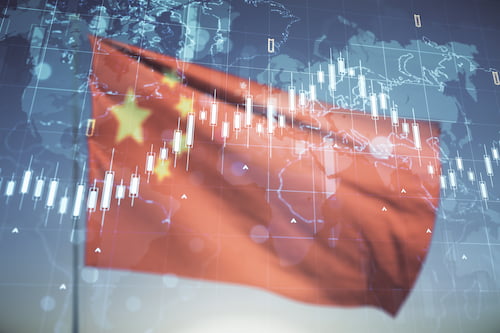China Economy is a topic of global interest, with its rapid growth and significant impact on the world market. In this blog post, we will delve into various aspects of China's economy, from the impressive growth in GDP to the government's stimulus measures aimed at sustaining this growth. Investment in infrastructure plays a crucial role in supporting China's economic development, while foreign trade exports continue to drive the country's exports. We will also explore the latest trends in domestic consumption and how they are shaping the economy. Additionally, we will look at the employment rates in China and the measures taken by the government to boost employment opportunities. Stay tuned as we unravel the complexities of China's dynamic and evolving economy.Analyzing the impact of GDP growth, infrastructure investment, export trends, consumption habits, employment rates, and government stimulus on economic development.

China's economy has experienced tremendous growth in GDP in recent years, solidifying its position as one of the world's largest economies. The consistent increase in Gross Domestic Product reflects the country's rapid development and progress in various sectors.
Investment in infrastructure has played a crucial role in driving the growth of China's GDP. The government's focus on building modern transportation networks, improving communication systems, and developing urban areas has significantly contributed to the country's economic expansion.
Moreover, foreign trade exports have been a key driver of China's GDP growth. The country's strong export sector, supported by its competitive manufacturing industry, has enabled China to maintain a positive trade balance and boost its overall economic performance.
Investment in infrastructure plays a crucial role in the economic growth and development of a country. It involves the construction of roads, bridges, ports, airports, and other essential facilities that are necessary for the smooth functioning of society.
Infrastructure investments not only create jobs and stimulate economic activity, but they also have long-term benefits such as improving connectivity, increasing productivity, and attracting foreign investment.
Countries that prioritize infrastructure development are able to enhance their competitiveness on a global scale and create a more sustainable and resilient economy.
Foreign trade exports play a crucial role in the economic growth of a country. It refers to the goods and services that are produced domestically and then sold to other countries. In the case of China, foreign trade exports have been a major driver of economic development. The country has seen a significant increase in its export volume over the years, making it one of the largest exporters in the world.
China's strong manufacturing base and competitive pricing have helped it become a key player in global trade. The country exports a wide range of products, including electronics, machinery, textiles, and more. With its focus on export-oriented growth, China has been able to capitalize on its comparative advantages and establish itself as a major player in the global market.
However, foreign trade exports are not without challenges. The ongoing trade disputes with major economies such as the United States have had an impact on China's export sector. With the changing global economic landscape, it is crucial for China to adapt its export strategy and diversify its export markets to mitigate risks and ensure sustained growth in foreign trade exports.
In recent years, domestic consumption trends in China have been on the rise. With an expanding middle class and increasing disposable incomes, Chinese consumers are spending more on a variety of goods and services. This trend is driven by a shifting economy that is transitioning from export-led growth to consumption-driven growth.
One of the key factors driving domestic consumption in China is the rapid urbanization of the country. As more people move to cities and urban areas, they have access to a wider range of products and services, leading to an increase in overall consumption. Additionally, the rise of e-commerce platforms has made it easier for consumers to shop online, further fueling consumption.
Despite the positive trends in domestic consumption, there are still challenges that the Chinese economy faces. These include income inequality, environmental concerns, and the impact of global economic uncertainty. However, with ongoing government initiatives to boost domestic consumption and stimulate the economy, the future looks promising for China's consumption trends.
Employment rates in China have been steadily increasing over the past few years, indicating a positive trend in job creation and economic stability. With the government's focus on promoting employment opportunities, more and more people are finding jobs in various sectors of the economy.
Unemployment rates have been declining, thanks to the efforts made by the government to boost the economy and create more jobs. This has resulted in a higher level of job security for the workforce, giving people more confidence in their employment prospects.
Overall, the country's strong employment rates are a reflection of its growing economy and the government's commitment to creating a stable and prosperous workforce for the future.
In response to the economic challenges faced by the country, the Chinese government has implemented a series of stimulus measures to boost growth and stability. These measures include increased infrastructure spending, tax cuts for businesses, and financial support for key industries.
One of the main goals of these government stimulus measures is to stimulate consumer spending and business investment, which in turn will help drive economic growth. By providing financial assistance to businesses and individuals, the government aims to create a more stable and prosperous economy.
Overall, the government stimulus measures are designed to provide a much-needed boost to the Chinese economy during challenging times. By investing in key sectors and supporting businesses, the government hopes to maintain growth and stability for the future.